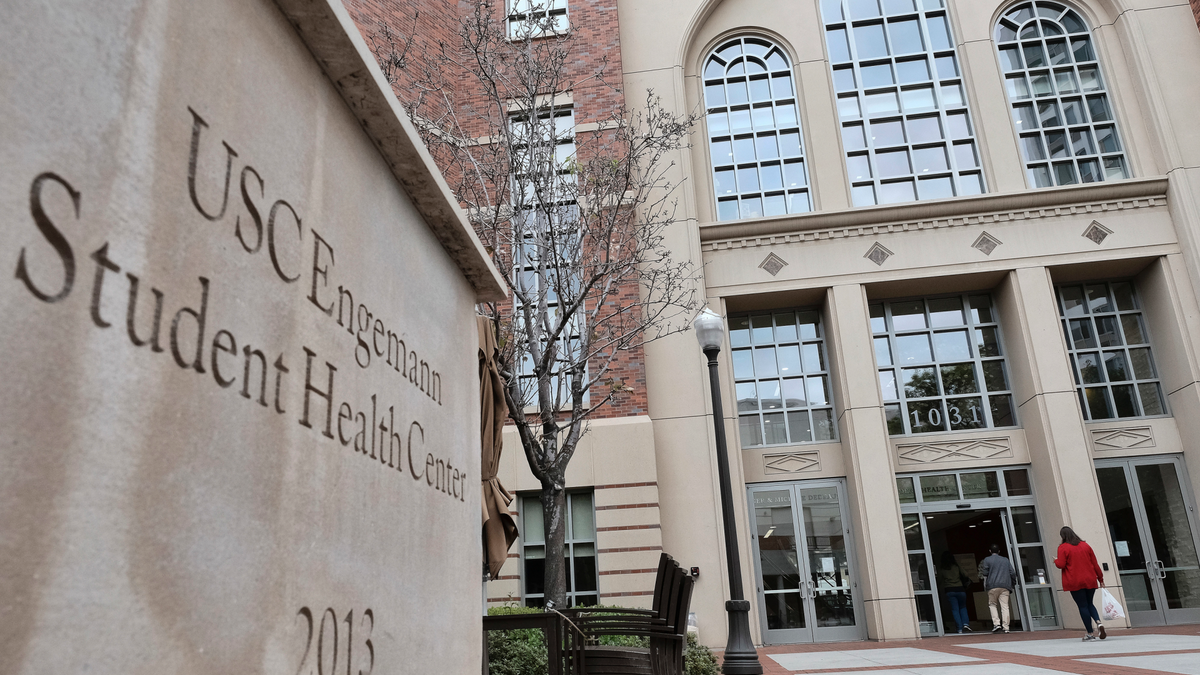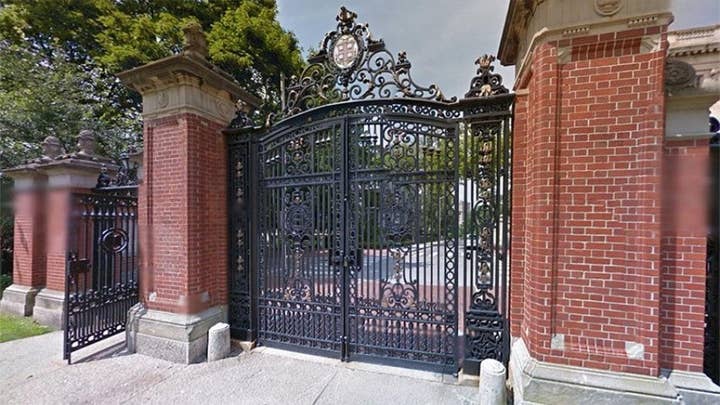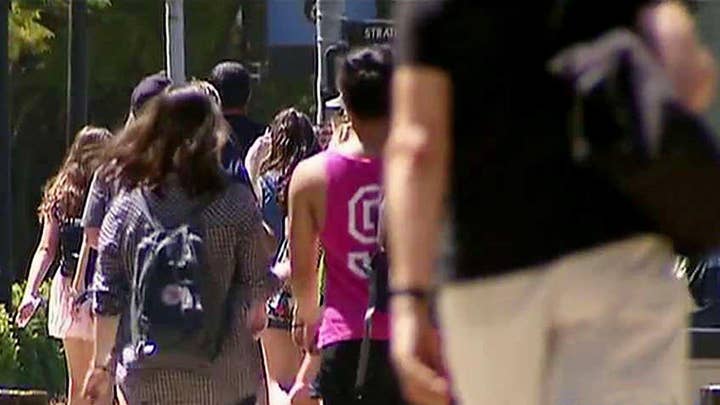
FILE - In this May 22, 2018, file photo, people enter the University of Southern California's Engemann Student Health Center in Los Angeles. (AP Photo/Richard Vogel, File)
The University of Southern California will have to overturn the expulsion of a student accused of rape because the school investigators did not question central witnesses and couldn’t locate “physical evidence” to determine the validity of the allegations, a California appeals court ruled on Tuesday.
The court said the accused student was denied a fair Title IX proceeding, because in addition to investigators apparently not being interested in interviewing the witnesses, their testimonies about the alleged nonconsensual anal rape were riddled with “inconsistencies” and raised questions whether the perceived blood they saw in the accuser’s apartment was actually paint.
The opinion, first published by The College Fix, noted that the university was quick to decide to expel “John Doe” and ignored its own rules to request clothing and medical records from “Jane Roe.”
The USC case stems from an incident over four years ago after Doe and Roe met at an alcohol-fueled party, where students splattered paint on each other and where Roe behaved “very flirty” with men, according to the evidence reviewed by the appeals court, and ended up with Doe in her room later in the night.
Roe told Title IX investigator Kegan Allee that she blacked out and her memories of the incident are coming from her friend named Emily, according to the College Fix. She said “there was blood on the sheets and mattress” and she was “covered in blood in her rectal area and on her thighs” in addition to paint.
“He was having sex with me but I wasn’t responding back. He flipped me over and pushed my head down. … The only thing I remember saying was ‘condom’ because I was probably really nervous he wasn’t using one,” she said.
“The most vivid memory is the pain from the anal intercourse. I shouted from [the] pain. I’m pretty sure it was loud. There was aggression to make him stop.”
Roe reportedly messaged her friend saying she “was taken advantage of but it’s fine” and that “it happens.” She also called another friend about the encounter, though couldn’t say if she had “verbally consented.”
Doe’s friend Carter, meanwhile, said the accuser initiated the sexual encounter and his friend stopped after he thought she wanted to have anal sex.
The university suspended Doe based on the allegations, claiming he is “a clear and present danger” to the campus, even as the evidence such as her clothing from the night, medical records, and the used condom was not provided to the defense so it could test it independently.
The Title IX investigator ruled that Doe “knew or should have known, regardless of his own intoxication,” that the woman was “too drunk to consent to sexual activity.”
Allee added that even if the accuser did “appear” to consent to vaginal sex, she was nonetheless “too incapacitated” to consent.
The appeals court slammed the school for over-reliance on one of the interviewer’s written notes rather than trying to locate and record physical evidence of the alleged crime, stating “there was no physical evidence” to back the school investigator’s findings.
The ruling is the latest setback for the Obama-era directive on campus rape, named “A Dear Colleague Letter” that set the procedures for colleges that receive a sexual assault report.
The procedures include setting how long campus sexual investigations should take, what standards of evidence should be used, and prohibiting colleges from just sending a case to the police.
Education experts have long criticized the directive and standards used in the prosecution of sexual assault on campus, claiming the accused students often do not receive significant protections and due process rights – turning university investigations into so-called “kangaroo courts.”
Last month, Education Secretary Betsy DeVos unveiled the overhaul of the procedures, adding more protections for those who have been accused of assault and harassment.
The proposed Title IX changes would limit the definition of sexual harassment and allow for the cross-examination of the accused by the accuser’s defense team.
The proposal also seeks to “clarify that in responding to any claim of sex discrimination under Title IX, recipients are not required to deprive an individual of rights that would be otherwise guaranteed under the U.S. Constitution; prohibit the Department’s Office for Civil Rights (OCR) from requiring a recipient to pay money damages as a remedy for a violation of any Title IX regulation; and eliminate the requirement that religious institutions submit a written statement to qualify for the Title IX religious exemption."
DEVOS TO ROLL BACK OBAMA-ERA TITLE IX REGULATIONS DEEMED UNFAIR TO THE 'ACCUSED'
Multiple students have been clashing with universities, claiming they were punished despite not finding enough evidence.
Matt Boermeester, also of the University of Southern California, was accused of sexual misconduct under Title IX. He was suspended – just weeks before graduating – and barred from campus and contacting his girlfriend, the victim of his alleged sexual assault.
The investigators found Boermeester guilty of the crime even as his girlfriend, Zoe Katz, denied the allegations. “Nothing happened that warranted an investigation, much less the unfair, biased and drawn-out process that we have been forced to endure quietly,” she said.
TRANSGENDER MSU STUDENT’S SEX ASSAULT CLAIM LEADS ACCUSED TO FIGHT BACK IN LAWSUIT
Michigan State University, meanwhile, charged a student with sexual harassment even though local authorities did not charge him with any type of crime.
Two students referred to as “Nathan and Melanie” in legal documents were already in a romantic relationship when Nathan put his hand under Melanie’s shirt. The accuser, who now identifies as a man, made a formal complaint to the university 16 months later for the “one-time, non-consensual touching.”
Melanie cited being transgender as the key reason for coming forward and claimed to fear encountering her ex-lover in the male bathrooms.
Fox News’ Caleb Parke contributed to this report.












































